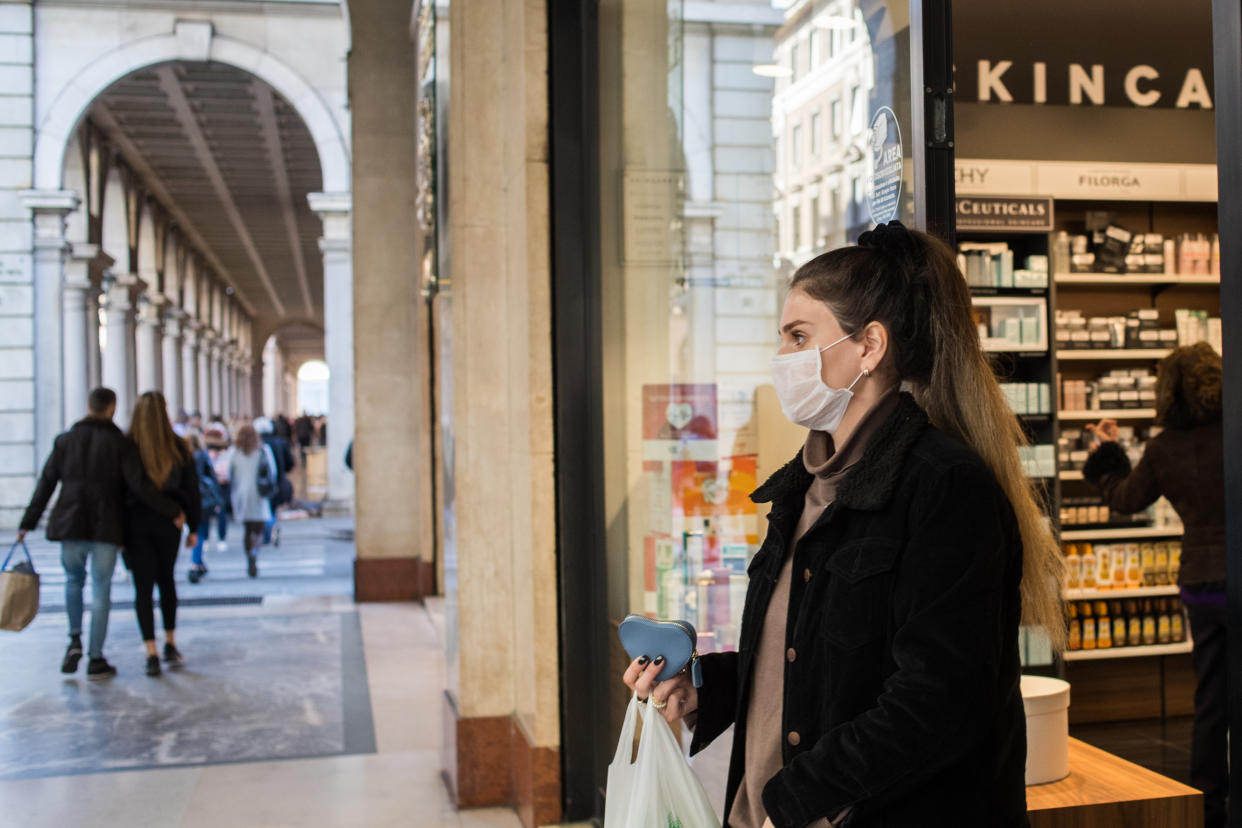Is coronavirus a pandemic? Experts weigh in on whether the outbreak qualifies

When it comes to the coronavirus and the looming label of a pandemic, questions abound. When will it become one? What will that mean for the global economy? Will everyone in America suddenly fall ill?
The media and the general public are far from the only ones asking questions. Epidemiologists, health security experts and even the World Health Organization — which revealed in a press conference Monday it no longer declares outbreaks pandemics — seem equally confounded and uneasy with the label. In interviews with Yahoo Lifestyle, two separate experts shared conflicting views on whether or not it is one.
“This is already a pandemic,” says Amesh A. Adalja MD, infectious disease specialist at Johns Hopkins Center for Health Security. “I’m not ready to call it a pandemic,” counters William Schaffner, MD, an epidemiologist and professor at the Vanderbilt University School of Medicine. Their conflicting answers reflect the larger land of confusion surrounding what to call the coronavirus outbreak — a rapidly growing health emergency that has now infected over 80,000 people worldwide.
Central to this confusion, it seems, is the lack of an official protocol for declaring that a pandemic exists — and the lack of a concrete definition of what a pandemic entails. Born of the Greek word pándēmos, meaning “all people,” most experts agree that it’s an outbreak that has spread to many countries across the globe. But as Schaffner emphasizes, it also needs to show “sustained community transmission” — meaning infections are happening on the ground, not solely between travelers from China.
If those are the parameters, it seems that this particular virus is — if not already there — heading in that direction. Over the course of a week, the virus has made troubling headway in Italy, Iran and South Korea, where over half of the more than 800 cases have been traced to a secret religious cult. It’s for this reason that Schaffner, who remains cautious about the pandemic label, is increasingly nervous.
“I will say this Sunday I was more anxious and concerned than I was last Sunday,” says Schaffner, who adds that he noticed a “note of concern” in the voice of Nancy Messonnier, head of the CDC’s National Center for Immunization and Respiratory Diseases, on the most recent press call. “She told us we can expect more cases and there may actually be some bursts of transmission here but we think we can get on top of those. But you know, we're looking internationally and we're nervous.”
As of Tuesday, America has confirmed just 53 cases of the illness, only one of which — between a husband and wife — was spread on the ground. But new cases are likely imminent. In Michigan, over 300 are reportedly being quarantined for a possible spread of the virus, while almost 200 were released from a California Air Force base after a two-week quarantine.
Adalja, who says the pandemic label would be “accurate,” believes it has the potential to trigger better surveillance and more rigorous treatment in places where it’s spreading rapidly. “It might move countries away from failed containment strategies and more towards mitigation, hospital preparedness, diagnostic scale-up, vaccine development and antiviral clinical trials,” he says.
Schaffner disagrees, and worries the label will cause undue panic. “It’s a word for something that's really bad and has very serious consequences and is spreading around the world, which will wreak a lot of humanitarian damage and cause a lot of deaths,” he tells Yahoo Lifestyle. “And it also leaves a lot of turbulence — societal disruption and economic downturn in its wake. So there's nothing good about it. And so I think that that's why people obviously are concerned and they feel that they may be a victim of this thing that's coming, and they feel kind of helpless about it.”
The epidemiologist says it removes the “locus of control” and makes people feel that there is “not much they can do except wash their hands and close the door and stay behind at home.” But since the risk in America remains low, even if it becomes a pandemic, that may increase worry where there should be none. “People are always more anxious than the actual risk ... but they're just human beings,” he says. “Are we surprised that we have an outbreak of coronavirus anxiety? No, we shouldn't be.”
Where he does align with Adalja is the likelihood that the label would “galvanize” global efforts. “The pandemic part will bring attention to any laggards out there,” Schaffner says. “When you declare a pandemic, everybody has to sit up and pay attention.”
As for WHO, the organization says it now classifies severe outbreaks by a six-part scale in which “global health emergency” — which the coronavirus outbreak was declared on January 30 — is the most severe. While the agency may start using the word pandemic when discussing the outbreak, however, it will likely be a little while.
“Our decision about whether to use the word ‘pandemic’ to describe an epidemic is based on an ongoing assessment of the geographical spread of the virus, the severity of the disease it causes and the impact it has on the whole of society,” WHO experts said in a Monday press conference. “Does this virus have pandemic potential? Absolutely, it has. Are we there yet? From our assessment, not yet.”
Read more from Yahoo Lifestyle:
Scientists debunk coronavirus conspiracy, say it 'threatens to undermine' global efforts to stop it
The flu has killed 10,000 Americans as the world worries over coronavirus
Want daily pop culture news delivered to your inbox? Sign up here for Yahoo Entertainment & Lifestyle's newsletter.

